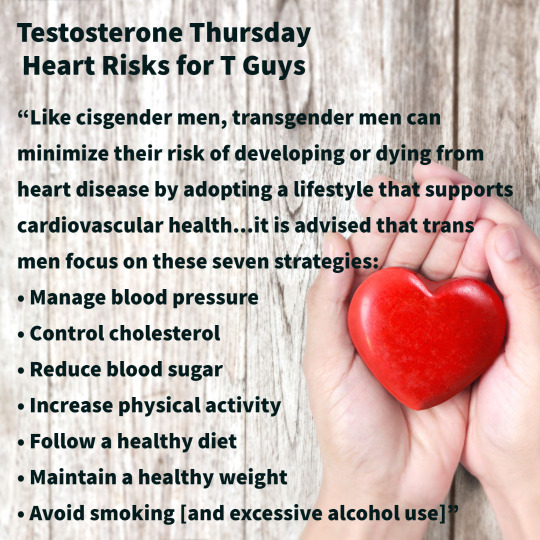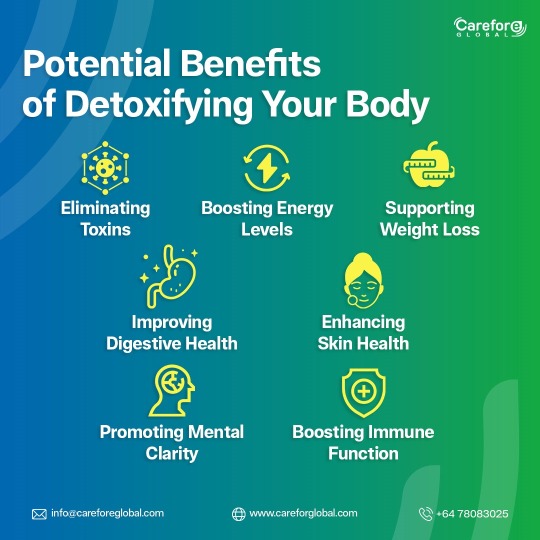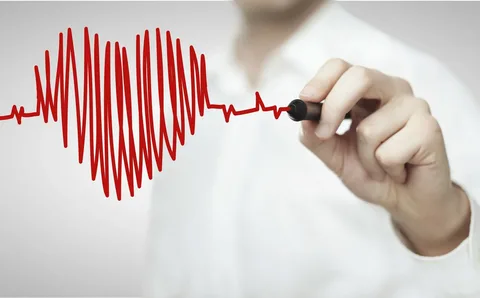#healthy heart
Text
youtube
Thanks to cbheart on HBP for sharing his echocardiogram for this comparison. I'm a huge fan of his, he keeps his heart in amazing condition. This is his heart next to mine and it is at scale, as in this is what it would look like if they were actually side by side. Nuts.
61 notes
·
View notes
Text

Testosterone Thursday
Ways to reduce risk of heart disease while on T
(from "Testosterone Use May Raise Heart Risk for Trans Men" by everydayhealth.com)
#Testosterone Thursday#sensible-tips#FTM#F2M#transmasculine#transmasc#transgender man#trans man#non binary#agender#bigender#genderqueer#genderfluid#medical transition#HRT#GAHT#T#testosterone#pre-T#FTM health#FTM transition#FTM wellness#healthy heart#cardiovascular health#preventative healthcare
12 notes
·
View notes
Text
When you take care of your mental health, you also improve….
Gut health
Immunity
Heart health
Hormone balance
Overall quality of life!
#mentalhealth#mental health#stress#stress management#Health#heart health#Healthy#healthy living#health tips#plantbased#hormone balance#hormones#healthy habits#healthy heart#healthy lifestyle
6 notes
·
View notes
Text
#diabetes remission#healthy heart#holidays#fishing#health#healthy habits#heart disease#british heart foundation
2 notes
·
View notes
Text
Here is the thing that they don't tell you about green beans. Cook those bad boys in some olive oil, garlic, red pepper flakes and bacon bits? They will absolutely FUCK!!!!!!
4 notes
·
View notes
Text
Foreign concepts

View On WordPress
#2023#Advice#Be yourself#beauty#Blog posts#Blogger#daily routine#dark times#Healthy boundaries#Healthy heart#Healthy life#Healthy mind#Motivational#selflove
5 notes
·
View notes
Text
Ivermectin as a potential treatment for COVID-19?

Brief Overview of Ivermectin
The definition and origin of Ivermectin.
The historical context of Ivermectin’s use as an antiparasitic drug.
It is widely recognized for its effectiveness against various parasitic infections in humans and animals.
Context of the COVID-19 Pandemic
Introduction to the global health crisis caused by the SARS-CoV-2 virus.
Overview of the ongoing efforts to develop effective treatments and vaccines.
Emphasis on the urgency to explore potential repurposed drugs for COVID-19 due to the rapidly evolving situation.
Controversy and Debate Surrounding Ivermectin as a Treatment for COVID-19
Emergence of Ivermectin as a subject of interest in the context of COVID-19.
Initial positive reports led to increased attention.
There is ongoing debate and controversy regarding its efficacy, safety, and appropriate usage.
There are divergent opinions among healthcare professionals, researchers, and health authorities.
The impact of the controversy on public perception and treatment decisions.
This sets the stage for a comprehensive exploration of Ivermectin’s potential as a treatment for COVID-19, delving into its mechanism of action, research studies, global usage, criticisms, public perception, and expert opinions.
Mechanism of Action
Explanation of How Ivermectin Works
Overview of Ivermectin’s primary mechanism as an antiparasitic agent.
Inhibition of the parasite nervous system through interaction with glutamate-gated chloride channels.
Broad-spectrum activity against various parasites, leading to its widespread use in veterinary and human medicine.
Read More:-
1 note
·
View note
Text

Potential Benefits of Detoxifying Your Body
0 notes
Text
Effective Ways to Improve Your Heart Health

Maintaining good heart health is crucial for overall well-being. Your heart works tirelessly to keep your body functioning, making it essential to adopt habits that promote its health and longevity. If you are looking for cardiovascular doctor in Seawoods do consider Dr. Kalkekar's CURA Advanced Cardiac Clinic for effective solution for your heart.
Understanding Heart Health
What is heart health?
Heart health refers to the condition of your heart and blood vessels. It encompasses various factors, including blood pressure, cholesterol levels, and overall cardiovascular function.
Factors affecting heart health
Several factors influence heart health, including diet, physical activity, stress levels, sleep quality, and genetic predisposition.
Tips for a Healthy Heart
Balanced diet
Consuming a balanced diet rich in fruits, vegetables, whole grains, lean proteins, and healthy fats is essential for heart health. Limiting processed foods, sugary snacks, and excessive sodium intake is crucial.
Regular exercise
Engaging in regular physical activity, such as aerobic exercises, strength training, and flexibility exercises, helps improve cardiovascular function, lower blood pressure, and maintain a healthy weight.
Stress management
Chronic stress can negatively impact heart health. Practicing stress management techniques like deep breathing, meditation, and yoga can help reduce stress levels and promote heart health.
Sufficient sleep
Quality sleep is vital for heart health. Aim for 7-9 hours of sleep per night to allow your body to rest and recharge, promoting optimal cardiovascular function.
Importance of Regular Check-ups
Preventive screenings
Regular medical check-ups allow healthcare providers to monitor your heart health through preventive screenings, such as blood pressure checks, cholesterol tests, and heart rhythm assessments.
Monitoring blood pressure and cholesterol levels
Regular monitoring of blood pressure and cholesterol levels helps identify any abnormalities early on, allowing for timely intervention and management to prevent heart disease.
Quit Smoking and Limit Alcohol
Dangers of smoking
Smoking is a leading cause of heart disease. Quitting smoking reduces your risk of heart disease and improves overall cardiovascular health.
Moderate alcohol consumption
Limiting alcohol intake to moderate levels can benefit heart health. Excessive alcohol consumption can lead to high blood pressure, heart failure, and other cardiovascular complications.
Maintaining a Healthy Weight
BMI and its significance
Maintaining a healthy body weight is essential for heart health. Calculating your Body Mass Index (BMI) can help determine if you are at a healthy weight range for your height.
Strategies for weight management
Incorporate healthy eating habits and regular exercise into your lifestyle to achieve and maintain a healthy weight. Avoid crash diets and focus on making sustainable changes for long-term success.
Importance of Hydration
Benefits of staying hydrated
Staying hydrated is crucial for heart health as it helps maintain proper blood volume and circulation. Aim to drink at least 8 glasses of water per day to stay hydrated.
Recommended water intake
Individual water needs may vary based on factors such as age, weight, activity level, and climate. Listen to your body's thirst cues and drink water throughout the day to stay adequately hydrated.
Managing Chronic Conditions
Diabetes management
Proper management of diabetes is essential for heart health. Monitor blood sugar levels regularly, follow a healthy diet, exercise regularly, and take medications as prescribed by your healthcare provider.
Hypertension control
High blood pressure increases the risk of heart disease. Follow lifestyle modifications recommended by your healthcare provider, such as dietary changes, exercise, and medication, to control hypertension.
Cholesterol management
High cholesterol levels can lead to plaque buildup in the arteries, increasing the risk of heart disease. Follow a heart-healthy diet low in saturated and trans fats, exercise regularly, and take cholesterol-lowering medications if prescribed.
Incorporating Superfoods for Heart Health
Examples of heart-healthy foods
Incorporate nutrient-rich foods like berries, leafy greens, fatty fish, nuts, seeds, and whole grains into your diet to support heart health.
Nutritional benefits
Superfoods are rich in antioxidants, vitamins, minerals, and omega-3 fatty acids, which help reduce inflammation, lower cholesterol levels, and support overall cardiovascular health.
The Role of Exercise in Heart Health
Types of exercises for heart health
Cardiovascular exercises, such as walking, jogging, swimming, and cycling, are excellent for improving heart health. Strength training exercises also benefit heart health by increasing muscle mass and boosting metabolism.
Frequency and duration recommendations
Aim for at least 150 minutes of moderate-intensity aerobic exercise or 75 minutes of vigorous-intensity aerobic exercise per week, along with two days of strength training exercises.
Stress Management Techniques
Meditation and mindfulness
Practicing meditation and mindfulness techniques helps reduce stress levels, promote relaxation, and improve overall emotional well-being.
Relaxation techniques
Engage in activities like deep breathing exercises, progressive muscle relaxation, and guided imagery to alleviate stress and promote heart health.
Engaging in hobbies
Spending time on activities you enjoy, such as gardening, painting, or playing music, helps distract your mind from stressors and promotes mental and emotional well-being.
Importance of Sleep for Heart Health
Effects of sleep deprivation
Chronic sleep deprivation can negatively impact heart health by increasing the risk of hypertension, obesity, and heart disease.
Tips for improving sleep quality
Establish a regular sleep schedule, create a relaxing bedtime routine, and create a comfortable sleep environment to promote restful sleep and support heart health.
Social Support and Heart Health
Importance of social connections
Maintaining strong social connections and nurturing meaningful relationships is essential for heart health and overall well-being.
Building a support network
Seek support from friends, family members, or support groups to cope with stress, share experiences, and maintain a positive outlook on life.
Addressing Heart Health in Different Life Stages
Heart health in youth
Encourage healthy habits from a young age, such as eating nutritious foods, staying active, and avoiding tobacco use, to promote lifelong heart health.
Heart health in adults
Continue to prioritize heart-healthy habits, such as regular exercise, a balanced diet, stress management, and regular check-ups, to maintain optimal heart health in adulthood.
Heart health in seniors
As you age, focus on managing chronic conditions, staying physically active, maintaining a healthy weight, and staying socially connected to support heart health and overall well-being.
Conclusion
Taking proactive steps to improve heart health is essential for reducing the risk of heart disease and promoting overall well-being. By adopting healthy lifestyle habits, managing chronic conditions, and seeking regular medical care, you can safeguard your heart health for years to come.
Unique FAQs
Q: Can I improve my heart health without medication?
Yes, lifestyle modifications such as adopting a healthy diet, exercising regularly, managing stress, and avoiding tobacco can significantly improve heart health without the need for medication.
Q: How often should I get my heart checked?
It is recommended to undergo regular preventive screenings and check-ups with your healthcare provider to monitor your heart health, especially if you have risk factors for heart disease.
Q: Are there any specific foods that are bad for heart health?
Foods high in saturated and trans fats, sodium, and added sugars should be limited as they can contribute to heart disease. Examples include fried foods, processed meats, sugary snacks, and sugary beverages.
Q: Can genetics affect heart health?
Yes, genetics can play a significant role in determining your risk of heart disease. However, adopting a healthy lifestyle can help mitigate genetic predispositions and reduce the risk of heart disease.
Q: What are some signs of poor heart health?
Symptoms of poor heart health may include chest pain or discomfort, shortness of breath, fatigue, dizziness, palpitations, and swelling in the legs or ankles. If you experience any of these symptoms, seek medical attention promptly.
0 notes
Text
Advancements in Portable Medical Device Like Spandan

Advancements in portable medical devices, exemplified by innovations like the Spandan portable ECG device, are reshaping healthcare delivery by offering unprecedented convenience, accuracy, and accessibility. These advancements are driven by several key factors:
Miniaturization and Portability: One of the most significant advancements is the miniaturization of medical technologies. Devices like Spandan are compact and lightweight, allowing patients to carry them easily, whether at home, work, or during travel. This portability promotes continuous monitoring and early detection of cardiac abnormalities, enhancing patient care and outcomes.
Wireless Connectivity: Modern portable medical devices often feature wireless connectivity, enabling seamless data transmission to smartphones, tablets, or cloud platforms. This connectivity facilitates real-time monitoring and remote consultation, empowering patients and healthcare providers with instant access to vital health information regardless of location.
Smart Algorithms and Analytics: Advanced algorithms and analytics embedded in devices like Spandan enable intelligent interpretation of physiological data. These algorithms can detect subtle changes in cardiac activity, alerting users to potential issues and prompting timely intervention. Additionally, they provide valuable insights into long-term trends, facilitating personalized healthcare management strategies.
User-Friendly Interfaces: Portable medical devices prioritize user experience with intuitive interfaces and simple operation. Features like touchscreen displays, voice prompts, and mobile applications make these devices accessible to a wide range of users, including patients with limited technical expertise or mobility impairments.
0 notes
Text
Additional options:
• Swap eggs with black beans or add them.
• To with 1/2 Tbsp feta
#recipes#Healthy#healthy breakfast#healthy habits#healthy lifestyle#healthy heart#healthy foods#healthy recipes#breakfast#mediterranean#antiinflammatory#hormone balance#hormone health
3 notes
·
View notes
Text
Unlocking Heart Health: A Guide for American Heart Month

As February unfolds, so does the significance of American Heart Month. This annual observance is a timely reminder to prioritize heart health and adopt lifestyle choices that contribute to a strong and resilient cardiovascular system. In this article, we delve into authentic practices and essential insights to promote heart well-being.keep reading
#Heart health#Healthy heart#cardiovascular health#cardiovascular disease#cardiovascular system#Healthy living#Prevention from heart disease#Fit heart#Heart wellness
1 note
·
View note
Text
Be an active participant in your own eternal becoming!!!!
#sitting here eating an orange and pistachios after Zumba and just :)#*dolly parton voice* find out who you want to be and then do that on purpose!!!!#a gentle sort of ruthlessness#mik mic#healthy heart
3 notes
·
View notes
Text
Vitamin K2 plays a significant role in heart health by assisting in the regulation of calcium metabolism within the body. This vitamin is crucial for activating proteins that help guide calcium to the bones and teeth, preventing its accumulation in arteries and soft tissues. By promoting proper calcium utilization, vitamin K2 contributes to arterial flexibility and reduces the risk of arterial calcification, which is associated with cardiovascular diseases. Including vitamin K2-rich foods or supplements in the diet may support heart health by aiding in the proper distribution of calcium in the body. However, it's essential to consult with a healthcare professional before making significant dietary changes or taking supplements.
0 notes
Text
Heat Health Unveiled: Unlocking the Secrets to a Strong and Resilient Cardiovascular System
Welcome, dear readers, to a journey that transcends the beats and rythms of our daily lives. Today we delve into the intricacies of heart health- a subject that deserves our attention and care. Join us on a captivating exploration of tips and insights that will not only safeguard your cardiovascular system but also empower you to lead a heart-healthy lifestyle.
Nourish With Purpose:
Your heart…

View On WordPress
#Cardio#fitness#health#Healthy Heart#Mental Health#nutrition#productivity#Safe Workouts#Smart Workouts#weight-loss
0 notes